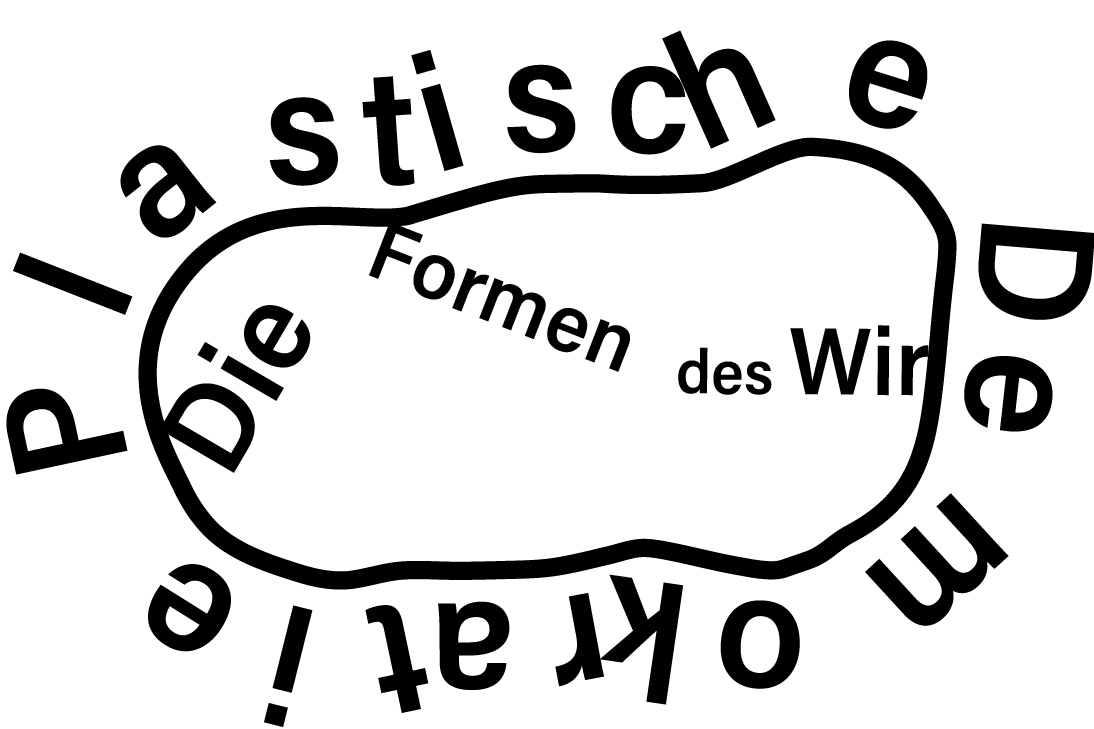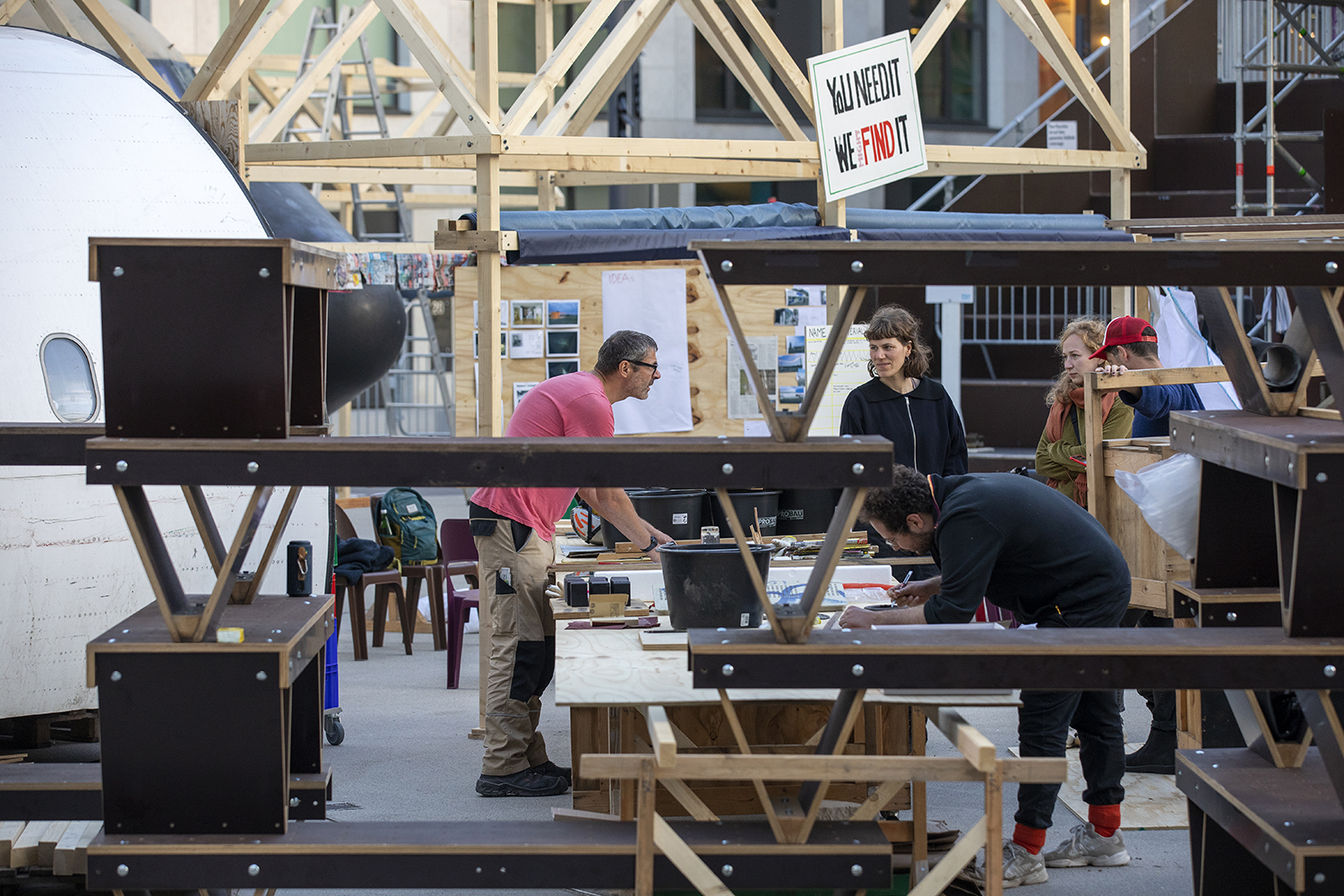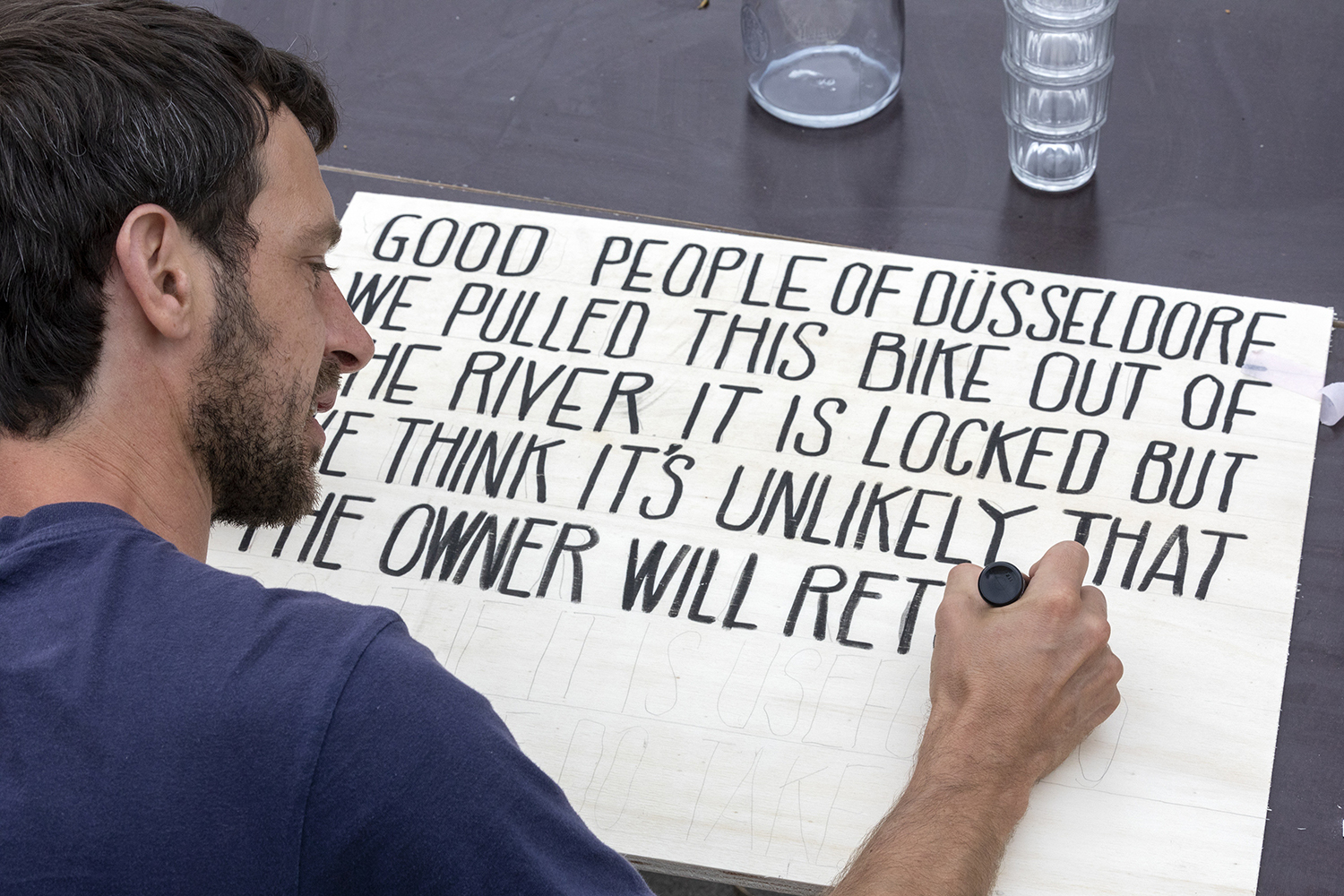
Workshop
Text by Maike Fraas, Martin Kaltwasser and Maik Ronz
In a communally built structure that corresponds to the aesthetics of a production street, the remnants of the commercialised inner city in particular and of the affluent society in general are transformed and (re)materialised. In the process, different themes are negotiated: Openness and diversity, low-tech and accessibility, creativity and inspiration, utopia and empowerment, sharing and learning, sustainability and recycling.
In the course of the workshop, materials that were freely available in the immediate urban space were collected, cleaned, processed, broken down into individual components and archived in order to subsequently feed them back into the cycle or make products from them that are needed in the federation. In this way, the raw material recovery centre functioned as a recycling station, material archive and workshop.
Based on the collected materials, a wide range of questions were discussed: How can we reduce waste and save resources? What are possible and impossible applications for the different materials? Trash or treasure? Who decides which material is at the end of the cycle? What are the limits of the zero waste idea? What can you learn about a city or places by collecting, sorting, archiving and mapping their waste? What are the stories behind a material or how can we speculate about it? How can these ideas reach wider circles of society?

Rohstoffrückgewinnungszentrum, Abteilung Düsseldorf (graphic Maik Ronz)

According to the motto »You need it, we (might) find it«, raw materials were collected to fulfil orders from the Federation. (Photo Maik Ronz)

Remnants of the affluent society: heaps of bulky waste in the centre of Düsseldorf. (Photo Onur Oztürk)

Production line: cleaning, cutting and preparing the raw materials. (Photo Maik Ronz)

Sorting and arranging the raw materials and speculating about their origin and source. (Photo Maik Ronz)

Social issues are negotiated during the production of objects. (Photo Rainer Schlautmann)

Exhibiting and communicating: Opening the material archive and presenting a raw material map of Düsseldorf and the resulting products. (Photo Maik Ronz)

Mobile flagship store: feeding the resulting products and reprocessed raw materials back into the urban space. (Photo Maike Fraas)

Material library: Processed material samples as a contribution of the Raw Material Recovery Centre to the Federation Archives. (Photo Maik Ronz)

Products made from waste: Example from a series of table tennis bats made from plywood scraps and various coverings, here wash-up sponge. (Photo Maike Fraas)

Steetfashion: A pair of exquisite evening shoes made of wood cuttings, PVC hose, rubber mat and lashing tape. (Photo Maike Fraas)

Transformation of the organic kitchen waste collected on the initiative of the Raw Materials Recovery Centre into the future raised bed, here being transported to the school garden of a Düsseldorf school. (Photo Maik Ronz)

Urban furniture: A frame rescued from the bulky waste and converted into an idiosyncratic piece of seating furniture is returned to the place where it was found - see above. (Photo Onur Oztürk)

Instigating: A bicycle salvaged from the Northern Dussel is offered. (Photo Rainer Schlautmann)